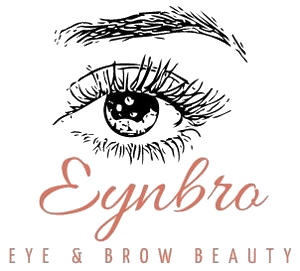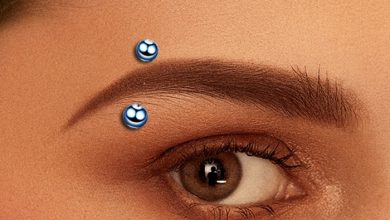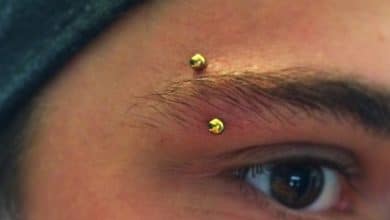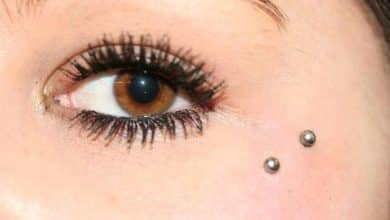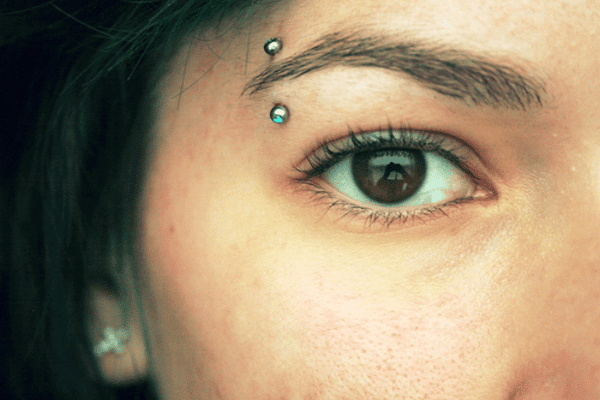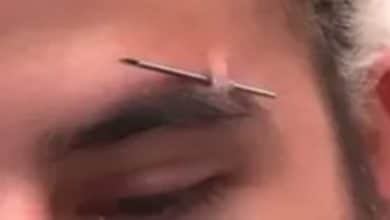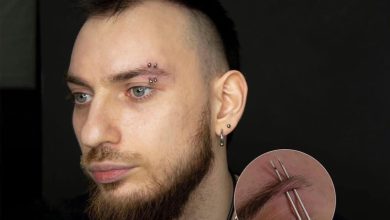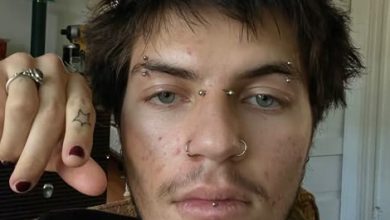Eyebrow piercing in islam: Understanding the Religious Perspective
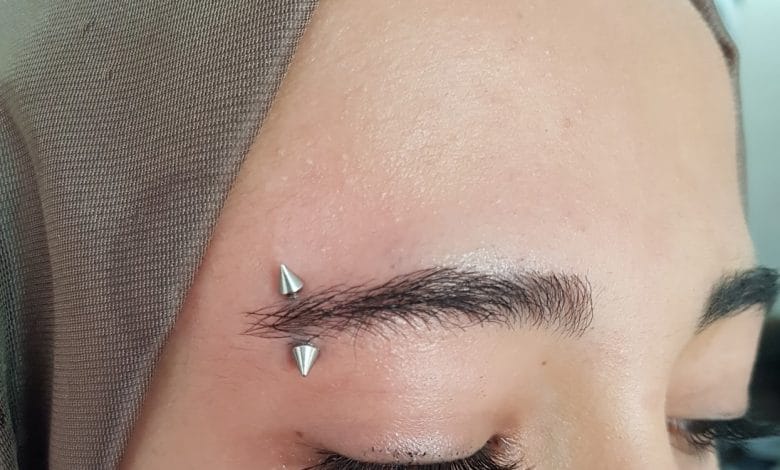
Eyebrow piercings have become increasingly popular as a form of self-expression and modern fashion. But for practicing Muslims, the question isn’t just about style — it’s about faith. Is eyebrow piercing haram in Islam? Does it go against the teachings of the Qur’an and the Sunnah? In this article, we’ll explore the different scholarly opinions, the conditions for permissible adornment, and the broader Islamic perspective on body modification.
There are no restrictions on the number of piercings one can have, except that one should not be excessive and should not harm one’s body. Thus, it is permitted to pierce the ear and nose for embellishment purposes. As for the piercing of the navel, tongue and other similar parts of the body, the scholars have not ruled on this matter.
A symbolic meaning of this piercing, for a reason related to the group (rite of passage, belonging to a group, making a difference with another group, …). This includes fashion related motivations. a shock value or pure rebellion. a good physical feeling of this particular piercing. Getting your nose pierced is a practice of Hindus, not Muslims. Therefore, it is forbidden for Muslims to get any other part of the body pierced except the ear,” said Ustaz Azhar in his Kelantan dialect in one of his YouTube videos. … However, for those whose cultures do not practice nose piercing, it is haram.”
According to Christian belief, participating in activities or a lifestyle that is considered sinful makes the act sinful, even if it is not objectively clear or “done” that the act is sinful. Believing that piercing is a sin and doing it anyway makes it a sin – essentially a self-fulfilling prophecy. Ever since Jungkook appeared with an eyebrow piercing during the promotion of K-pop group BTS’s song “Butter,” fans have been puzzled. “Yes, I had my eyebrows pierced… It became complicated to keep putting stickers on, so I got them pierced.
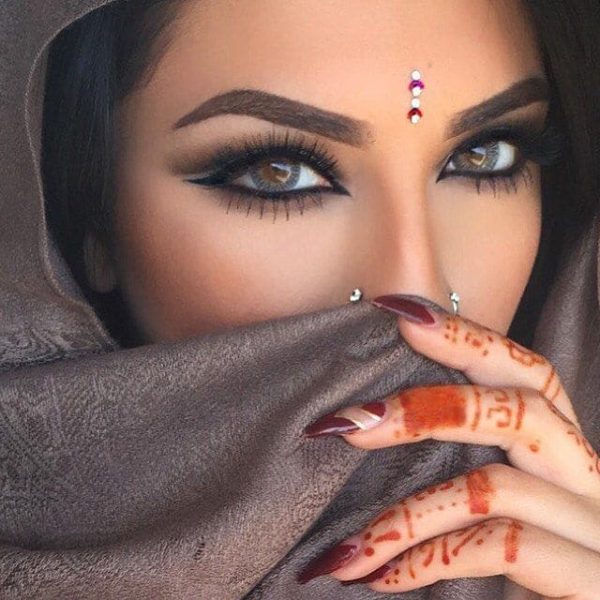
Is Eyebrow Piercing Haram?
The permissibility of eyebrow piercings in Islam depends on several factors, including cultural norms, health concerns, and religious rulings related to adornment and modesty.
General View on Piercing in Islam
In Islam, piercing is not explicitly addressed in the Quran or the Hadith. However, its permissibility is derived from Islamic principles that govern adornment, modesty, and respect for the natural creation.
Traditionally, ear piercings for women have been widely accepted as a permissible form of beautification, rooted in cultural practices that were prevalent during the time of the Prophet Muhammad (peace be upon him). Women in his era, including the companions of the Prophet, adorned themselves with earrings. This indicates a clear precedent for ear piercings being halal (permissible).
However, rulings on other types of piercings, including eyebrow piercings, are more nuanced and vary depending on cultural norms, health considerations, and individual intentions.
Key Principles That Govern Piercings in Islam
Before ruling on whether a piercing is permissible, Islamic scholars consider several foundational principles. These principles apply broadly to all types of body adornment.
| Principle | Description |
|---|---|
| Avoid Harm | Piercings must not cause physical harm or risk of infection. Islam prohibits self-harm. |
| No Imitation | Muslims are discouraged from adopting styles associated with immoral or non-believing communities. |
| Modesty | Adornments must not be displayed in front of non-mahram men. |
| Cultural Acceptance | The adornment should be customary among Muslim women in the region. |
| No Alteration of Creation | Piercings should not be done with the intent to alter Allah’s creation unnecessarily. |
Cultural Context and Flexibility
Islamic rulings on adornment often accommodate cultural differences. In some cultures, eyebrow piercing is seen as a contemporary form of beautification, while in others, it may be perceived as immodest or unnecessary.
If an eyebrow piercing aligns with cultural practices that are not in conflict with Islamic values of modesty and decency, some scholars argue it may be permissible. For example, piercings like nose rings are acceptable in many South Asian and Middle Eastern cultures because they are deeply rooted in tradition. Similarly, the permissibility of eyebrow piercing might depend on its acceptance as a non-excessive, culturally relevant form of adornment.
Eyebrow Piercing in Islamic Culture
Unlike ear or nose piercings, eyebrow piercings are not considered a traditional or customary form of adornment among Muslim women. During the time of the Prophet Muhammad (peace be upon him), there is no evidence that women wore eyebrow jewelry.
Because of this, eyebrow piercings are often seen as a modern, Western-influenced trend. In many Islamic communities, adopting such trends is viewed as an act of imitation (tashabbuh) of non-Muslim or immoral behavior, which is explicitly discouraged in Islam.
Preserving Modesty and Intentions
In Islam, adornment must adhere to the principle of modesty. Women are encouraged to restrict the visibility of their adornments to mahrams (close male relatives) and other women. If an eyebrow piercing is likely to draw undue attention from non-mahrams, it may contravene Islamic guidelines.
Additionally, the intention (niyyah) behind obtaining an eyebrow piercing is crucial. If the purpose is to enhance beauty within permissible bounds, it may be acceptable. However, if it is motivated by a desire to imitate non-Islamic trends or attract attention in inappropriate ways, it could render the practice impermissible.
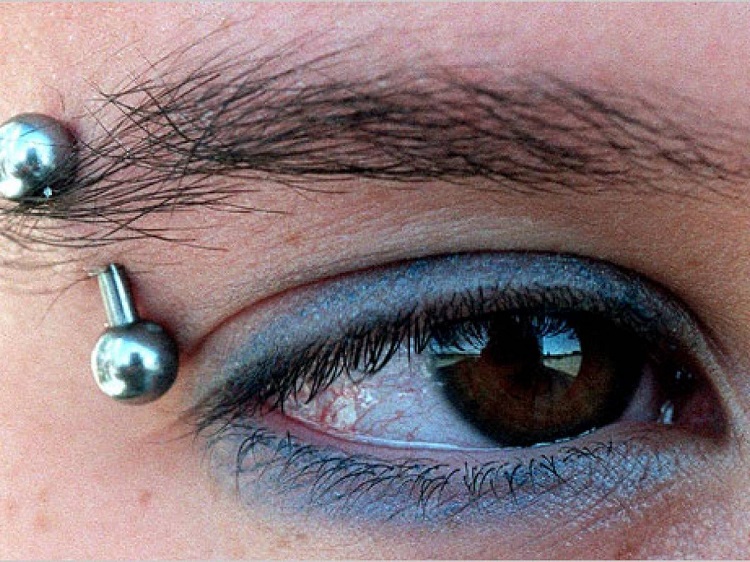
What If You Already Have an Eyebrow Piercing?
If a woman got an eyebrow piercing before embracing Islam or during a period of ignorance, Islamic scholars generally advise the following:
- She should not display the piercing to non-mahram men.
- If the piercing does not cause harm and is in an area that can remain covered (such as under the hijab), it may not be obligatory to remove it.
- If the intent behind keeping it is simply adornment for her husband or within her private space, it may not be sinful — but removing it is the more cautious approach.
In Islam, intention (niyyah) matters. If the piercing was not intended to imitate immoral behavior and no longer poses harm, Allah is Most Merciful.
Respect for Natural Creation
A foundational principle in Islam is the respect for Allah’s creation. The Quran states, “There is no altering Allah’s creation” (Surah Ar-Rum, 30:30). While this principle does not explicitly prohibit reversible adornments like piercings, it serves as a guideline against excessive or unnecessary modifications to the body.
Eyebrow piercing may be considered permissible if it does not significantly alter the natural form or serve a vain purpose. Scholars often advise moderation in all forms of adornment, emphasizing that beauty should align with modesty and not defy the fitra (natural disposition).
Comparison Table: Piercing Types and Their Rulings in Islam
| Piercing Type | Permissible for Women | Permissible for Men | Health Concerns | Scholarly Consensus |
|---|---|---|---|---|
| Ear | Yes | No | Low | Permitted |
| Nose | Often | No | Low to moderate | Mixed opinions |
| Eyebrow | Rarely | No | Moderate | Mostly prohibited |
| Tongue | No | No | High | Prohibited |
| Lip | No | No | High | Prohibited |
| Navel | Rarely | No | High | Mostly prohibited |
Eyebrow Piercing in Islam
The question of whether eyebrow piercing is permissible in Islam is a contentious issue. Some Muslims believe that it is permissible because there is no explicit prohibition in the Quran or the Hadith (the sayings and actions of the Prophet Muhammad). They argue that as long as the piercing is not harmful to the body and does not involve anything that is haram (forbidden) in Islam, such as alcohol or pork, it is permissible.
Others, however, believe that eyebrow piercing is haram because it involves changing the natural form of the body, which is considered a form of mutilation. They argue that the body is a gift from Allah and should not be altered in any way. Additionally, they believe that the act of piercing the eyebrow is similar to the act of tattooing, which is explicitly forbidden in Islam.
Scholarly Opinions on Eyebrow Piercings
The majority opinion among Islamic scholars is that eyebrow piercings are not permissible. Here’s why:
- They lack cultural legitimacy in Islamic tradition.
- They may cause unnecessary harm, including infections and scarring.
- They may be used to draw attention in ways Islam seeks to avoid.
- They are not recognized as a legitimate form of beautification within the boundaries of the Sunnah.
However, a minority of scholars argue that if the following conditions are met, eyebrow piercings could be allowed:
- It is a cultural norm among Muslim women in the region.
- The piercing does not cause harm.
- It is not shown to non-mahram men.
- It is not done for the purpose of imitating non-Islamic customs.
These exceptions, though, are rare and context-dependent.
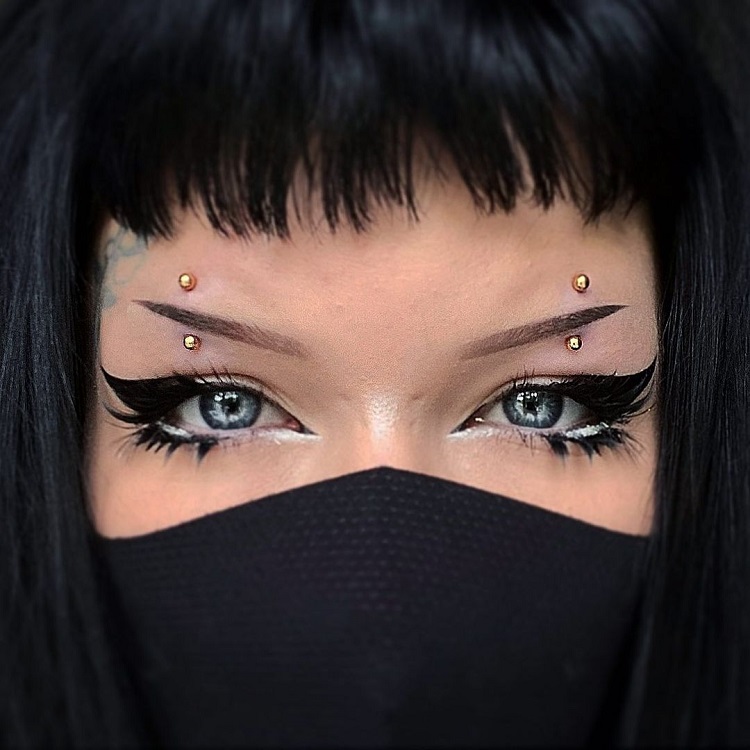
Fatwas and Religious References
- Islam Q&A (Fatwa #139178): Permissibility depends on local Muslim customs and absence of harm. Must not be shown to non-mahrams.
- Ibn Qudamah (Al-Mughni, 2/325): Women may wear adornments customary in their society, but not those that imitate men or immoral trends.
- Shaykh Ibn ‘Uthaymin: Ear piercings are allowed for adornment, but other types like tongue or nose piercings may be harmful and are discouraged.
These rulings emphasize the need to consider both the spiritual and practical aspects before deciding on a piercing.
The Arguments for and Against Eyebrow Piercing in Islam
Arguments for Eyebrow Piercing
Those who believe that eyebrow piercing is permissible in Islam argue that:
- There is no explicit prohibition in the Quran or the Hadith on eyebrow piercing.
- The act of piercing the eyebrow is not harmful to the body and does not involve anything that is haram in Islam.
- It is a form of self-expression and does not necessarily involve changing the natural form of the body.
Arguments Against Eyebrow Piercing
Those who believe that eyebrow piercing is haram in Islam argue that:
- The body is a gift from Allah and should not be altered in any way.
- The act of piercing the eyebrow is similar to the act of tattooing, which is explicitly forbidden in Islam.
- It involves changing the natural form of the body, which is considered a form of mutilation.
- It is a form of imitation of non-Muslims and does not have any Islamic significance.
Halal Adornment vs. Altering Allah’s Creation
Islam celebrates beauty — but within limits. The Prophet (peace be upon him) said: “Allah is beautiful and loves beauty.” (Sahih Muslim)
However, Islam also prohibits unnecessary alterations to the human body. The Qur’an warns against “changing the creation of Allah” (Surah Ar-Rum 30:30), which many scholars apply to excessive or unnatural forms of body modification.
Eyebrow piercings — unlike ear piercings — are not traditionally accepted and may be viewed as tampering with the natural appearance without a clear benefit.
When Is a Piercing Considered Haram?
A piercing becomes haram when it:
- Causes medical harm or risk of infection.
- Is done for the sake of imitating non-Muslims or immoral figures.
- Requires exposing private parts during the procedure.
- Becomes a form of attention-seeking or vanity.
- Violates the dress code and modesty rules of Islam.
FAQ: Common Questions About Eyebrow Piercing in Islam
Is it sinful to get an eyebrow piercing if I don’t show it to anyone?
If the intention is not to imitate immoral behavior and the piercing remains private, the sin is reduced. Still, it may be discouraged due to its modern and non-traditional nature.
Are piercings completely haram in Islam?
No. Ear piercings for women are widely accepted. Some nose piercings are also considered halal depending on cultural context and health risks.
Can Muslim men get eyebrow or ear piercings?
No. Body adornments are considered part of feminine beautification in Islam. Piercing is not allowed for men and is viewed as imitating women.
What if I already got the piercing before becoming religious or before reverting to Islam?
Islam forgives what came before. If you’re concerned, consult a scholar for personalized guidance, and avoid showing it to non-mahrams.
Can I keep my eyebrow piercing if I cover it with hijab?
If it remains covered and causes no harm, you may be allowed to keep it. But removing it is considered the safer, more modest choice.
Takeaway
Islamic rulings on eyebrow piercings are rooted in deeper values: health, modesty, cultural identity, and avoiding imitation of those outside the faith. While some exceptions exist, the majority of scholars consider eyebrow piercings haram due to their modern origins, potential harm, and lack of traditional acceptance.
If you’re unsure, it’s always better to consult a knowledgeable scholar who understands your context. Islam does not reject beauty — it simply places it within a framework of dignity, purpose, and protection.
Conclusion
The permissibility of eyebrow piercing in Islam depends on several factors: cultural acceptance, intention, health considerations, and adherence to Islamic principles of modesty and respect for natural creation. While it is not explicitly prohibited, its practice must be approached with caution and consciousness of Islamic values.
Before making a decision about piercing, ask yourself not only “Can I?” but also “Why should I?” That reflection may be more valuable than the piercing itself.
